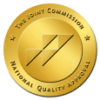If you’re searching for detox Knoxville or inpatient detox Knoxville, you’re in the right place. Tennessee Detox Center provides safe, medically supervised care for Knoxville residents who are ready to stop using alcohol, opioids, benzodiazepines, or other substances. Admissions move quickly, clinical assessments are thorough, and care plans are evidence-based.
From the first phone call to your first 72 hours onsite, our team focuses on comfort, safety, and clarity. You’ll know what to expect, who is caring for you, and how we’ll support you after detox so you leave with a treatment plan, real tools for cravings and stress, and a clear path toward long-term recovery.

What Tennessee Detox Center Offers Knoxville
Treatment is delivered at our La Vergne campus in Greater Nashville. We serve clients statewide, including Knoxville and East Tennessee.
Our admissions team helps you map the simplest way to arrive, including guidance on travel and, when available, transportation support.
Pre-admission steps can be completed virtually, so you’re not making extra trips or delays when you’re ready to start. Medical screening, benefits checks, and packing guidance are handled quickly and confidentially.
If you are searching for detox in Knoxville or inpatient detox Knoxville, our medical team can help you start safely, stabilize withdrawal symptoms, and plan the next right level of care based on your history, goals, and any co-occurring mental health needs.
Why Knoxville residents choose Tennessee Detox Center
Tennessee Detox Center provides a full continuum of care so you don’t have to piece recovery together. It begins with medically managed detox for alcohol, opioids, benzodiazepines, stimulants, and polysubstance use, followed by residential inpatient treatment for structure and therapeutic depth. [1]
As you stabilize, step-down options include Partial Hospitalization, Intensive Outpatient, and standard Outpatient care.
Throughout, we integrate dual diagnosis support for conditions like anxiety, depression, and PTSD, involve loved ones through a supportive family program, and maintain momentum with aftercare and alumni services that keep you connected and accountable.
Why Knoxville residents choose us
- Rapid insurance benefit checks and clear financial estimates
- 24/7 nursing with onsite medical provider oversight
- Evidence-based protocols for alcohol, opioid, and benzodiazepine withdrawal
- Medication management and, when appropriate, medication-assisted treatment
- Individual and group therapy with CBT, DBT skills, mindfulness, and relapse prevention
- Trauma-informed care and privacy protections for professionals and families
- Structured step-down planning from day one, so your next level of care is reserved.
- Family involvement, with your consent, and coordinated updates
- Aftercare and alumni programming to support long-term recovery
Commonly Misused Substances Affecting Knoxville
Alcohol remains a leading driver of harm across Tennessee, including Knoxville and East Tennessee. State data show that binge drinking is a major pattern within excessive alcohol use, and national surveillance consistently links binge episodes to higher risks of injury, emergency department visits, and withdrawal complications when people try to stop suddenly.
In Tennessee, recent estimates put binge drinking near one in seven adults—numbers that translate into real pressure on local hospitals and families. [2]
Opioids—especially fentanyl—continue to shape overdose trends. Tennessee’s drug overdose dashboard tracks fatalities, nonfatal overdoses, and prescribing at the county level, offering a clear picture of how the crisis plays out locally from year to year. [3]
Provisional statewide reporting shows a recent slowdown in fatal overdoses after years of increases, but the rate remains high, and fentanyl is still a dominant factor. For people in Knox County, local officials maintain a suspected overdose deaths dashboard to increase transparency and responsiveness.
One bright spot has been community access to naloxone. Through Tennessee’s Regional Overdose Prevention Specialists, hundreds of thousands of naloxone units have been placed into the community since 2017, with tens of thousands of documented reversals—clear evidence that widespread training and distribution saves lives. [4]
Health departments also directly provide naloxone statewide, with tens of thousands of boxes distributed in a single 12-month span. For Knoxville residents and first responders, that means more bystanders and professionals are equipped to intervene during opioid-involved emergencies.
Benzodiazepines and polysubstance use remain a quiet but serious threat. Mixing benzodiazepines with opioids or alcohol raises the risk of respiratory depression, blackouts, and complex withdrawals that are harder to manage safely without medical oversight. National fatal overdose surveillance underscores how often more than one drug is involved, a pattern that complicates emergency care and recovery planning. [5]
Stimulants—methamphetamine and cocaine—are also part of the picture in East Tennessee. Beyond the risks intrinsic to heavy stimulant use (cardiac strain, agitation, sleep loss), the increasing presence of fentanyl in non-opioid drug supplies has raised the stakes.
People who do not consider themselves “opioid users” can still encounter fentanyl-adulterated stimulants, which drive unexpected overdoses and require an opioid-aware safety plan. That shifting landscape is reflected in state dashboards and provisional federal reporting.

Alcohol withdrawal can be dangerous without medical supervision. After sustained heavy use, the central nervous system may rebound abruptly when drinking stops. Symptoms can progress from tremor, sweating, and nausea to seizures or delirium tremens.
In a medical detox setting, clinicians monitor vitals, replace fluids, support electrolytes, and use evidence-based medications to lower the risk of severe complications. Quiet space, sleep support, and nutrition round out the plan so your body can stabilize safely.
Opioid withdrawal is rarely life-threatening, but it can be intensely uncomfortable—marked by muscle aches, GI distress, anxiety, insomnia, and dehydration. Supervised detox focuses on comfort, hydration, and restoring electrolyte balance while watching for co-occurring conditions that may need attention.
When appropriate, clinicians can bridge to medication-assisted treatment, which reduces cravings and stabilizes brain chemistry so you can begin therapy with a clearer head and a safer plan for the days ahead.
Benzodiazepine withdrawal deserves particular caution. These medications act on GABA receptors; stopping suddenly after regular use can trigger rebound anxiety, panic, insomnia, and—in higher-risk cases—seizures. A clinician-directed taper, symptom monitoring, and supportive medications help reduce risk.
For many people, a gradual step-down within a structured setting is the safest approach, especially when other substances are involved.
Polysubstance use changes the equation. Alcohol plus benzodiazepines, or opioids combined with sedatives or stimulants, can mask or magnify symptoms and shift the timeline of withdrawal peaks.
Medical teams adjust monitoring frequency, choose medications with care to avoid dangerous interactions, and extend the stabilization window when needed. The goal is simple but vital: keep you safe and as comfortable as possible while preparing you for the next level of care, whether that’s residential treatment, day programming, or an intensive outpatient plan.
What Detox Feels Like Day by Day
- Day 0–1:
Arrival and settling in. You’re greeted, checked in, and shown to a quiet room where you can exhale. A nurse completes your assessment, reviews your history, takes vitals, and coordinates basic labs so the medical team can tailor your plan. You’ll talk through any current symptoms, past withdrawal experiences, medications, and mental health needs. From there, we start a medication plan designed to reduce discomfort and lower risks. Hydration begins early—oral or IV as needed—along with simple, nourishing meals that are easy on the stomach. You’ll get a gentle orientation to the daily rhythm and who to call if you need something overnight.
- Day 2–3:
Riding the peak. For many substances, this is when symptoms crest. Alcohol and benzodiazepine withdrawals may require closer monitoring; opioid withdrawal often peaks with restlessness, GI upset, body aches, and anxiety. Nurses check in frequently, adjust comfort medications, and keep an eye on fluids, electrolytes, and sleep. If you’re struggling to rest, we use nonaddictive sleep supports and create a low-stimulation environment. Short, supportive conversations help you name what you’re feeling and learn quick strategies for cravings and agitation.
- Day 4–7:
Stabilizing and planning ahead. Symptoms usually ease into more manageable waves. You’ll continue medication as indicated, eat more consistently, and begin feeling clearer. This is when cravings planning takes center stage: triggers, counter-moves, and a simple safety script for tough moments. You’ll meet with a therapist to map your next step—residential treatment, day programming, or intensive outpatient—so there’s no gap in care. Discharge planning starts early and stays flexible; your team updates it as your symptoms change.
-
Every detox looks a little different. Timelines vary with substance type, dose, frequency, overall health, and whether more than one substance is involved. The common thread is steady medical oversight, compassionate support, and a plan that adapts to your body’s pace.
- Safety, Comfort, and Dignity
You’re monitored around the clock by a nursing team with direct access to medical providers. Protocols guide care for alcohol, opioid, and benzodiazepine withdrawals, and vitals checks are paced to your risk level.
We focus on comfort without losing sight of safety—steady hydration, light nutrition, and symptom-specific medications that reduce distress and help you rest.
Small things matter when you don’t feel well. We emphasize sleep hygiene, quiet spaces, and a predictable daily rhythm. If you’re sensitive to noise or light, we minimize stimulation and keep routines calm. For nausea or dehydration, we respond quickly with targeted support so your body can stabilize.
Care is trauma-informed and privacy-forward. You choose who is contacted, how often, and what is shared. If you’re a professional or first responder, we tailor communication to protect confidentiality. Staff approach difficult moments with respect—asking permission, explaining next steps, and offering options whenever possible.
The goal is simple: keep you safe, reduce discomfort, and treat you like a whole person throughout the process.
Who should consider Detox in Knoxville
Detox is for Knoxville residents who want a safe, medical start to recovery from alcohol, opioids, benzodiazepines, stimulants, or any combination of substances. It’s especially helpful if you’ve had rough withdrawals before, use daily, or aren’t sure what’s in your supply.
If anxiety, depression, PTSD, or sleep problems ride alongside substance use, a dual-diagnosis approach during detox can reduce risk and set you up for steadier progress.
It’s for first-timers who are done trying to quit alone—and for returners who know they need more structure this time. It’s for people who tried to taper at home, felt worse, and want a safer plan. It’s for families who need reassurance that their loved one is being watched closely and treated with compassion.
Seek urgent medical care first if any red flags are present: seizures or a history of alcohol withdrawal seizures; severe confusion, hallucinations, or chest pain; very high blood pressure; uncontrolled vomiting; signs of dehydration; fainting; suicidal thoughts; or a recent head injury.
If you’re uncertain whether symptoms are safe to manage in detox or require emergency care, err on the side of caution—stability comes first, and treatment can continue once you’re medically cleared.
The Continuum of Care From Detox to Long-Term Recovery
Recovery works best when each step prepares you for the next. It begins with medical detox, where the focus is on stabilization and relief from acute withdrawal. As your body settles and symptoms come under control, you regain the clarity needed to begin therapy work. The team helps you identify goals, risks, and supports so you move forward with a practical plan.
Residential inpatient treatment follows for those who benefit from structure. Days are organized around individual and group therapy, skills practice, and consistent routines that rebuild sleep, nutrition, and stress management.
Who it’s for: Clients who benefit from a contained, structured environment after detox. This is particularly helpful when triggers are everywhere at home, when mood or anxiety symptoms remain volatile, or when previous attempts to quit didn’t hold.
What happens here: Your days follow a supportive rhythm. Mornings typically include grounding or mindfulness, followed by individual sessions and small, skills-focused groups. Afternoons might include cognitive behavioral work, craving management, and relapse prevention. Evenings are calmer—journaling, light reading, or brief community activities that reinforce routine and sleep hygiene. Family involvement occurs with your consent to align expectations and build a realistic support plan.
Clinical goals:
- Translate early stability into consistent daily habits.
- Practice CBT and DBT skills in real-time scenarios.
- Address core drivers—stress, sleep, pain, trauma cues—without substances.
- Build a step-down plan before discharge, with dates and contacts locked in.
Typical length: Varies by needs and progress. The emphasis is on meeting clear milestones—symptom stability, skill adoption, and readiness for more independence.
What success looks like: You can identify triggers before they escalate, use at least three coping strategies reliably, and maintain a predictable schedule that supports sleep, meals, and therapy participation.
Partial Hospitalization is the next level for many people. It delivers the intensity of daytime treatment with the flexibility to spend evenings at home or in supportive housing. You continue therapy, medication management, and relapse prevention planning while practicing skills in real life between sessions.
Who it’s for: Clients ready for more independence but who still need high-intensity, daytime structure. It’s a strong fit when you can manage evenings in a supportive setting but benefit from daily clinical touchpoints.
What happens here: Expect several therapy blocks per day, five days per week. Individual sessions target personalized goals while groups focus on skills practice: cognitive restructuring, distress tolerance, emotional regulation, communication, and boundary setting. Medication management continues as needed, and you’ll test your skills at night—then bring the “real-world feedback” into the next day’s session.
Clinical goals:
- Strengthen coping under light stress outside the clinic.
- Fine-tune medications and sleep routines while you’re active in daily life.
- Build relapse prevention beyond theory: trigger mapping, early-warning signs, and a practical “if-then” plan for spikes in craving or mood.
- Coordinate the next step (IOP or OP) with logistics sorted in advance.
Typical length: Several weeks, adjusted to progress and stability.
What success looks like: You’re consistently using skills in the evenings, returning to discuss what worked, and adjusting plans quickly—with fewer spikes and faster recovery when stress lands.
Intensive Outpatient provides focused therapy hours that fit into a growing daily routine. You keep building skills, strengthen relapse prevention plans, and address triggers that show up at work, school, or home. The care team monitors progress and adjusts your plan when challenges arise.
Who it’s for: Clients who can maintain stability with fewer clinical hours—often while returning to work, school, or caregiving. It’s ideal when you want strong accountability without a full-day schedule.
What happens here: You’ll attend multiple sessions per week at set times. The cadence keeps therapy meaningful without overwhelming your calendar. Groups emphasize relapse prevention, communication, sleep, and stress routines. Individual sessions troubleshoot specifics: difficult conversations, travel triggers, anniversaries, or high-risk social situations.
Clinical goals:
- Maintain gains while building confidence in daily settings.
- Practice proactive coping before known stressors (deadlines, holidays).
- Keep medication management steady and data-driven (sleep logs, symptom check-ins, side-effect reviews).
- Expand your support map: mutual-help, peer contacts, healthy activities, and emergency options.
Typical length: Several weeks to a few months, depending on goals and life demands.
What success looks like: You demonstrate a sturdy weekly rhythm—work or school, exercise or walks, consistent meals, and dedicated recovery touchpoints—with a written plan for the next 90 days.
Outpatient care is maintenance and momentum. Sessions are scheduled at a cadence that makes sense for your stability and goals. Medication management continues when indicated, and you stay connected to your therapist and group work so small problems do not become setbacks.
Aftercare and alumni support keep you anchored over time. Regular check-ins, peer groups, and relapse prevention refreshers provide accountability and encouragement. If you need specialized services, staff coordinate referrals and help you re-engage at a higher level of care when needed. The result is a clear path from first stabilization through long-term support, with each step designed to meet you where you are.
Who it’s for: Everyone completing a structured level of care. Connection lowers risk and increases satisfaction with life in recovery.
What happens here: Periodic check-ins, peer groups, skills refreshers, and easy access to brief booster sessions when life tilts. You’ll review your early-warning signs quarterly, rotate in a new coping practice when an old one gets stale, and keep a short “support script” handy for high-risk days. Alumni connections add accountability and practical tips from people living the same commitments.
Clinical goals:
- Prevent small setbacks from becoming big ones.
- Refresh relapse prevention with seasonal and life-stage shifts.
- Keep a warm handoff ready if care intensity needs to step up.
- Celebrate milestones and meaning, not just abstinence.
What success looks like: You feel anchored, seen, and prepared—using community and skills as first responses, not afterthoughts.
Who benefits: Clients stepping down from residential or PHP who want evenings in a clean, recovery-consistent environment while skills solidify.
What coordination looks like: Admission dates are sequenced so there’s no gap between levels of care. Transportation, schedules, and contact information are set in advance. Packing stays light; paperwork stays simple.
Why it matters: Early weeks set the tone. Minimizing chaos gives you more energy for therapy and routines—and fewer chances for old patterns to slip in.
Why it matters: Anxiety, depression, PTSD, and sleep disorders are common companions to substance use. Treating only the chemical dependence ignores drivers that can reignite symptoms later.
How it works in practice:
- Detox/Residential: Stabilize sleep and acute anxiety with nonaddictive options, add simple grounding tools, and clarify safety plans.
- PHP/IOP: Run parallel tracks—substance use skills alongside targeted mood or trauma work. Introduce DBT skills (distress tolerance, emotion regulation) and cognitive strategies for spirals and catastrophizing.
- OP/Aftercare: Sustain routines that support mental health—movement, light exposure, sleep windows, and boundaries with technology and work.
Outcome focus: Reduce symptom volatility so recovery isn’t a tug-of-war between cravings and mood. The result is steadier days and a lower burden on willpower.
Family involvement is encouraged with your consent. Loved ones learn how to support recovery while also setting healthy boundaries, which improves outcomes after you step down.
What families get: Education on boundaries, communication skills that replace arguments with agreements, and realistic expectations for early recovery.
What you control: Consent, timing, and scope. You decide who’s included, how often we update them, and what we share.
Why it helps: When loved ones understand triggers, timelines, and supportive language, home becomes part of the solution. Clear roles reduce friction and protect your progress.
Return-to-work planning: Identify stress points (shift patterns, deadlines, travel) and insert buffers—brief movement, food/water anchors, and micro-skills for rapid reset after tough moments.
School coordination: Time-boxed study blocks, reliable sleep windows, and communication scripts with advisors or professors.
Boundaries: A short “availability policy” for yourself—when you take calls, when you say no, and when you invite help—keeps recovery at the center while you re-enter life.
Therapies Used in Drug and Alcohol Rehab
Care is built around a mix of individual therapy, group therapy, and family sessions.
- Individual Therapy
One-to-one sessions give you space to process history, clarify goals, and tailor strategies.
- Group Therapy
Groups provide connection, feedback, and skill practice with peers who understand what you are facing.
- Family Therapy
Family sessions, when you choose to include them, align expectations and strengthen support at home. Psychoeducation runs throughout the program so you understand how substances affect the brain and body and why certain strategies work.
- CBT and DBT Therapy
Therapeutically, you can expect cognitive behavioral therapy, DBT skills training, mindfulness, and practical coping and craving plans. These tools help you manage thoughts and emotions, ride out urges, and make steady progress.
Medication Management and MAT Pathways
Principle: Medications support—not replace—behavior change. The aim is safety, comfort, and function so therapy can do its work.
During detox: Symptom-specific medications reduce risk and distress while clinicians monitor vitals and side effects.
In ongoing care: If appropriate, medication-assisted treatment can stabilize cravings and lower relapse risk. Plans are individualized, reviewed regularly, and adjusted with your goals in mind. When mental health medications are indicated, dosing and timing are chosen to support sleep and daily functioning.
Why Choose Tennessee Detox Center for Drug and Alcohol Rehab?

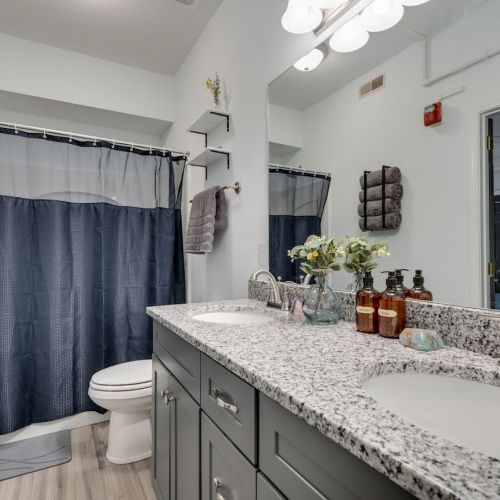

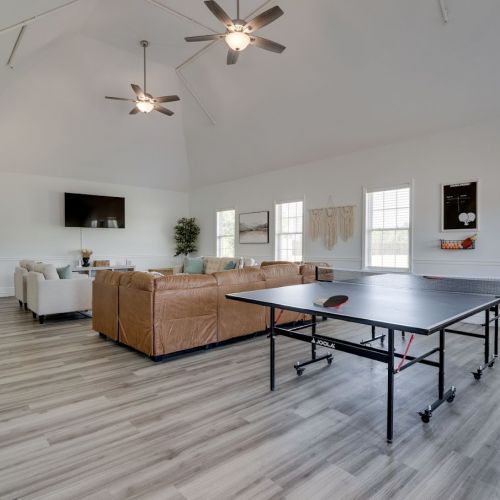




Start Drug and Alcohol Detox today at Tennessee Detox Center
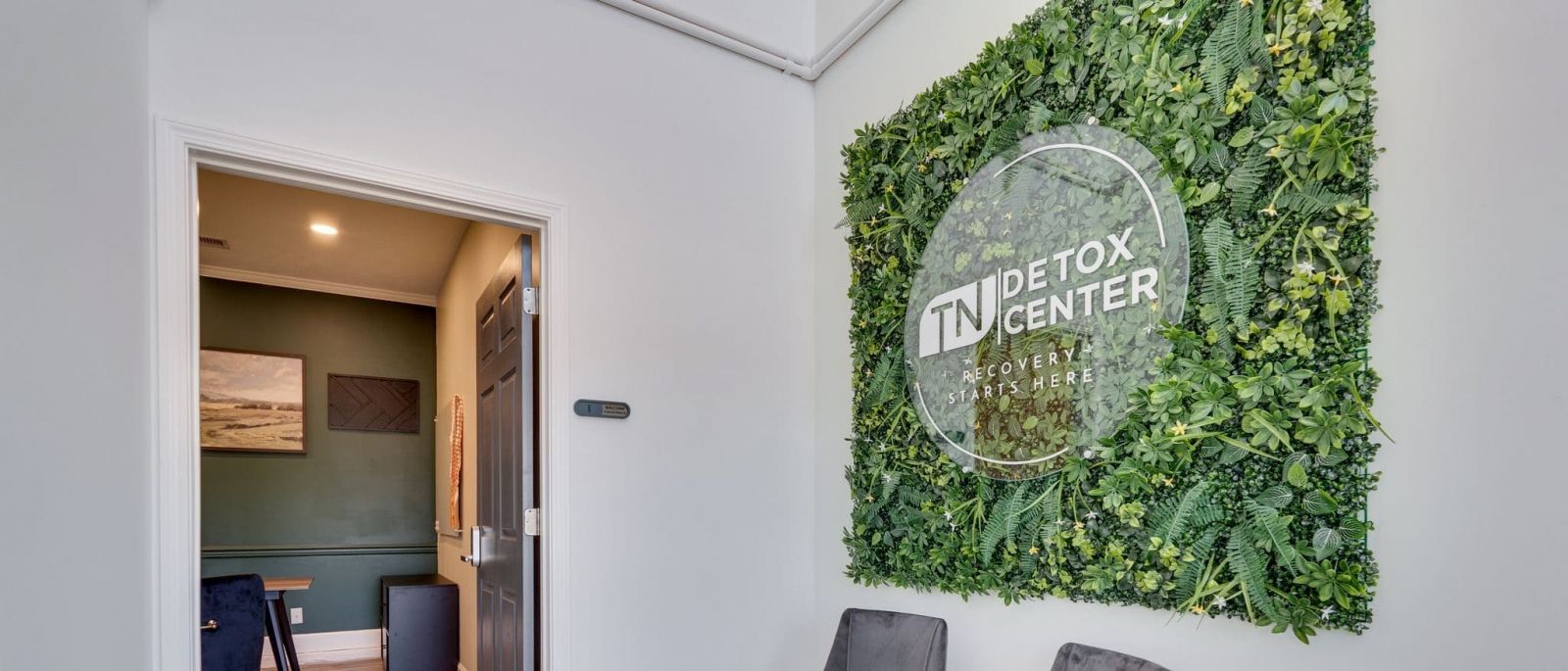
One confidential call gets you clarity and a plan. We’ll complete a same-day assessment, run a fast benefit verification, and map your first steps so you know exactly what to expect. Whether you begin with Detox, Residential, or Outpatient, we’ll coordinate a clear step-down plan so support tapers gradually as you get stronger.
Tell us what’s going on (dose, schedule, sleep, stress), and we’ll tailor recommendations to your life. If co-occurring anxiety, depression, trauma, attention issues, or pain are part of the picture, we’ll align medical and therapy supports from day one. You won’t be asked to choose between feeling stable and staying off kratom. We’ll help you do both.
We’ll map the right starting level —whether it’s detox, residential, or outpatient — and schedule your first 72 hours, including arrival, orientation, and initial skills. From there, we’ll lock in therapy appointments, peer support, and prescriber follow-ups to get momentum going immediately.
Traveling From Knoxville to Our La Vergne Campus
Most Knoxville residents arrive by car in about two and a half to three hours, heading west toward the Greater Nashville area and into La Vergne. If you prefer not to drive, ask about coordination options; when available, we can help you plan a simple pickup or rideshare arrangement that fits your admission window.
Aim to arrive during the agreed-upon check-in time so we can complete assessments and get medications started promptly. Keep your bag small and easy to manage, with essentials and prescriptions on top. If your clinical screening indicates that a same-day or next-day admission is appropriate, we’ll help you move quickly and safely so you don’t lose momentum.
Knoxville Area Resources for Immediate Support
If you or someone you love is in immediate danger, call 911 or go to the nearest emergency department. In Knoxville, nearby options include the University of Tennessee Medical Center (Knoxville), Fort Sanders Regional Medical Center, and Parkwest Medical Center.
For crises involving thoughts of self-harm, call or text 988 to reach the Suicide & Crisis Lifeline. Tennessee’s statewide crisis line is available 24/7 at 855-CRISIS-1 (855-274-7471) to help connect you with local services.
Mutual-help groups can also be an important part of early recovery. Alcoholics Anonymous, Narcotics Anonymous, and SMART Recovery list Knoxville-area meetings on their official websites, with options for in-person and online formats. These resources are independent; listing them is for information only and does not imply affiliation or endorsement.
Life After Detox
Detox clears the fog and settles your body; recovery is what you build next. Simple routines make the biggest difference: steady sleep, regular meals with enough protein and fluids, gentle movement most days, and a few minutes of stress care—breathing, journaling, or a brief walk—when cravings spike. Your clinical team helps you map a plan that fits your life, whether that’s residential treatment, day programming, or intensive outpatient.
As you step down, aftercare and alumni touchpoints keep you connected with check-ins, peer groups, and relapse-prevention refreshers. If challenges surface, you can return for extra support or adjust medications without losing momentum. You don’t have to figure it out alone; we’ll help you choose the next step that matches your goals, family needs, and timeline—and we’ll stay in your corner as you keep moving forward.

Call Now and Start Detox Safely
If you’re looking for detox Knoxville, help is ready. Tennessee Detox Center offers medically supervised care that focuses on safety, comfort, and a clear plan for what comes next. From the first call, we verify benefits, outline your options, and set a realistic timeline so you’re not navigating this alone. Whether you need a same-day admission or are comparing levels of care within Drug and Alcohol Rehab Knoxville, TN, we’ll meet you where you are and move at the right pace.
Yes, Your Insurance Covers Detox and Rehab Treatment
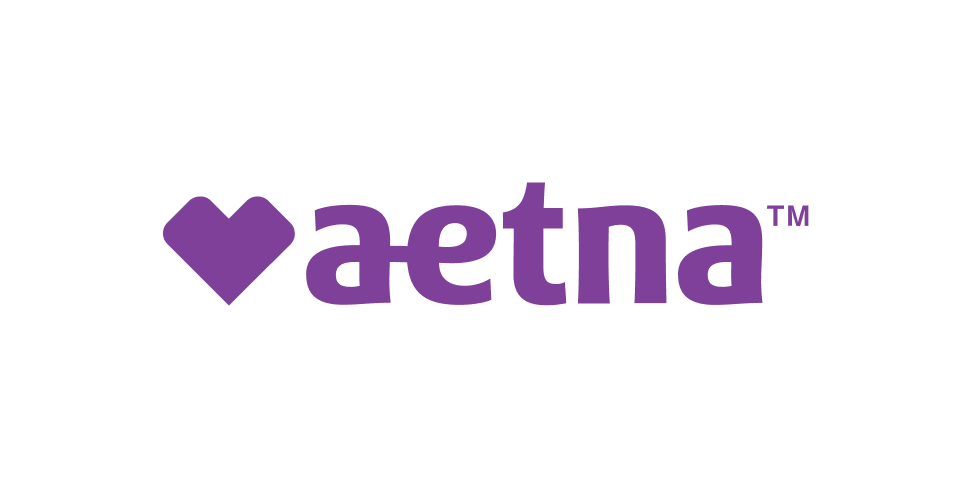


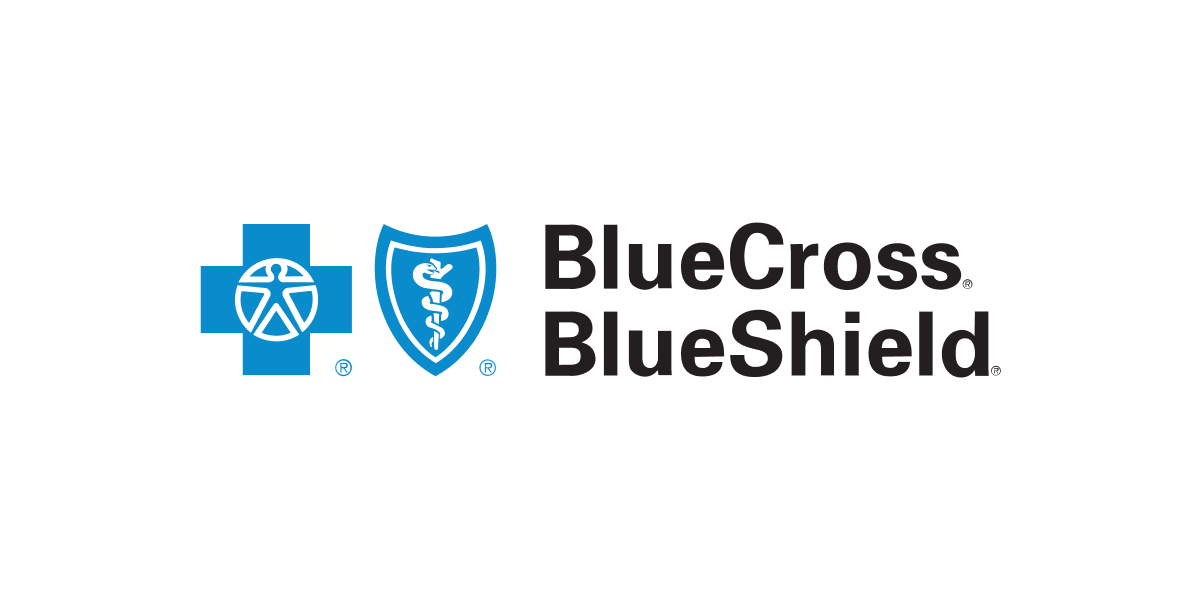
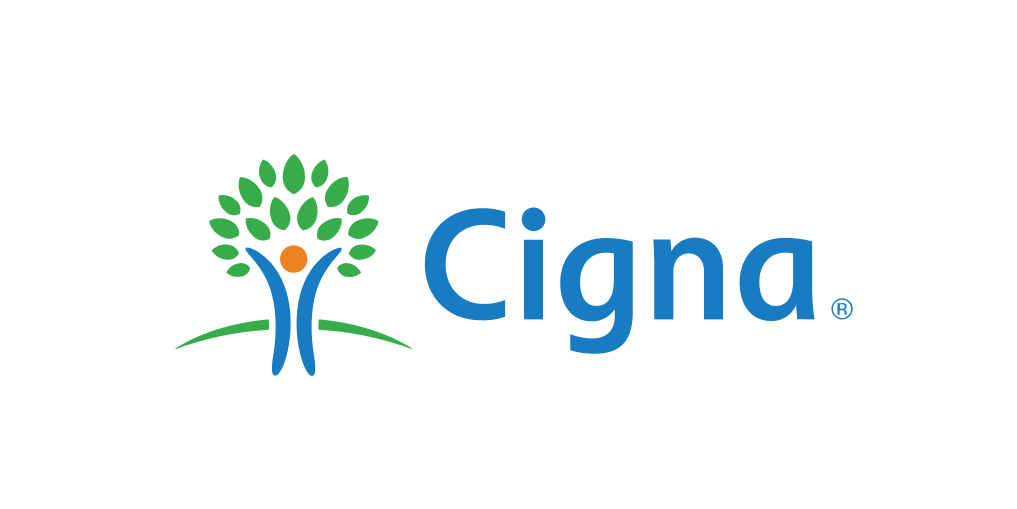
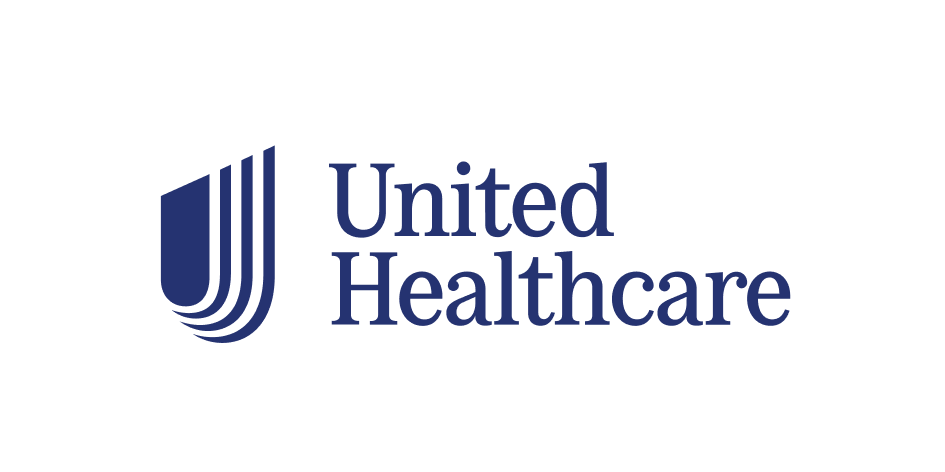
Frequently Asked Questions About Drug and Alcohol Rehab in Knoxville, Tennessee
Most people complete detox in three to seven days. Alcohol and benzodiazepine withdrawals can require longer monitoring, especially with heavy or long-term use. Opioid withdrawal often peaks around days two to three and eases after. Polysubstance use, medical conditions, and past withdrawal history can extend the timeline for safety.
Common symptoms include sweats, shaking, body aches, nausea, anxiety, insomnia, and mood swings. We monitor vitals, maintain hydration and nutrition, and use comfort medications as indicated. If risks rise—such as seizure risk with alcohol or benzodiazepines—medical providers adjust protocols to keep you safe and as comfortable as possible.
Alcohol and benzodiazepine withdrawals can be dangerous without medical oversight. Opioid withdrawal is rarely life-threatening but can be intense and dehydrating. Supervised detox reduces risks, treats symptoms, and stabilizes you for therapy. It’s the safest way to start, especially if you’ve had severe symptoms in the past or use multiple substances.
Yes. We plan your next step during detox so there’s no gap in care. Many transition to residential for structure; others step to day treatment or intensive outpatient. Your history, goals, home supports, and work or school needs guide the level we recommend.
We can coordinate with reputable programs closer to home when that’s your preference. Your discharge plan includes warm handoffs, records sharing with consent, and practical details like appointment times and transportation options so you remain supported as you continue care.
With your consent, we set a cadence for updates and invite loved ones to participate when clinically appropriate. Family sessions help align expectations, establish healthy boundaries, and create a realistic support plan for the weeks after discharge.
Coverage varies by plan, diagnosis, and level of care. We verify benefits quickly and explain what’s typically covered, what isn’t, and estimate out-of-pocket costs. You’ll receive a clear summary before admission so you can decide with confidence.
We assess and stabilize co-occurring mental health needs during detox. Your plan may include targeted medications, grounding skills, and an after-detox level of care that continues therapy for both substance use and mental health, improving comfort and outcomes.
Bring a photo ID, insurance card, and current prescriptions in original bottles. Pack comfortable clothing, simple toiletries, and contact numbers for loved ones and providers. Keep it light; if you’re unsure about an item, ask our team before arrival.
Addiction Group. (n.d.). Tennessee drug and alcohol statistics. Retrieved July 28, 2025, from https://www.addictiongroup.org/tennessee/drug-statistics/
Substance Abuse and Mental Health Services Administration (SAMHSA). (2023). 2023 ICCPUD state report: Underage drinking prevention – Tennessee. U.S. Department of Health and Human Services. Retrieved from https://library.samhsa.gov/sites/default/files/tennessee-iccpud-state-report-2023.pdf
Tennessee Alcoholic Beverage Commission. (2024). Report to prevent underage drinking, drunk driving, and other harmful uses of alcohol (PC 961). State of Tennessee. Retrieved from https://www.tn.gov/content/dam/tn/abc-documents/abc-documents/PC-961-2024-Report-to-Prevent-Underage-Drinking-Drunk-driving-and-Other-Harmful-Uses-of-Alcohol.pdf
National Institute on Alcohol Abuse and Alcoholism (NIAAA). (2012). Alcohol withdrawal syndrome. In S. C. Merrill & B. S. Frances (Eds.), The management of alcohol use disorders: A practical guide for clinicians (NIH Publication No. 12–5191). National Center for Biotechnology Information. Retrieved from https://www.ncbi.nlm.nih.gov/books/NBK64119/

Medically Reviewed By:
Dr. Vahid Osman, M.D.
Board-Certified Psychiatrist and Addictionologist
Dr. Vahid Osman is a Board-Certified Psychiatrist and Addictionologist who has extensive experience in skillfully treating patients with mental illness, chemical dependency and developmental disorders. Dr. Osman has trained in Psychiatry in France and in Austin, Texas. Read more.

Clinically Reviewed By:
Josh Sprung, L.C.S.W.
Board Certified Clinical Social Worker
Joshua Sprung serves as a Clinical Reviewer at Tennessee Detox Center, bringing a wealth of expertise to ensure exceptional patient care. Read More
The Joint Commission – The Gold Seal of Approval® signifies that Tennessee Detox Center meets or exceeds rigorous performance standards in patient care, safety, and quality. It reflects a commitment to continuous improvement and clinical excellence.
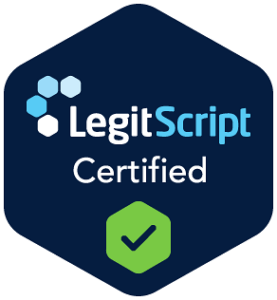
LegitScript Certified – Confirms that Tennessee Detox Center operates in full compliance with laws and regulations, and meets high standards for transparency and accountability in addiction treatment marketing.
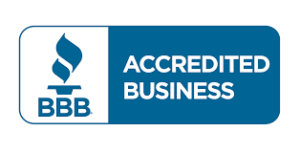
BBB Accredited – Demonstrates ethical business practices, commitment to customer satisfaction, and a trusted reputation within the community.
Psychology Today Verified – Indicates that Tennessee Detox Center is listed on Psychology Today, a trusted directory for verified mental health providers and treatment centers.
HIPAA Compliant – Ensures all patient health information (PHI) is protected and managed in accordance with strict federal privacy and data security standards.
ASAM Member – Tennessee Detox Center is a proud member of the American Society of Addiction Medicine (ASAM), reflecting a commitment to science-driven and evidence-based treatment standards.

Rutherford County Chamber of Commerce – Membership signifies active participation in the local community and support for regional growth and civic collaboration.
Get Family Support Now
Supporting Families Through Recovery
We understand addiction affects the whole family. Our comprehensive family program helps rebuild trust and restore relationships.
Weekly Family Therapy Sessions
Educational Workshops
Support Groups
Communication Skills Training
Addiction Group. (n.d.). Tennessee drug and alcohol statistics. Retrieved July 28, 2025, from https://www.addictiongroup.org/tennessee/drug-statistics/
Substance Abuse and Mental Health Services Administration (SAMHSA). (2023). 2023 ICCPUD state report: Underage drinking prevention – Tennessee. U.S. Department of Health and Human Services. Retrieved from https://library.samhsa.gov/sites/default/files/tennessee-iccpud-state-report-2023.pdf
Tennessee Alcoholic Beverage Commission. (2024). Report to prevent underage drinking, drunk driving, and other harmful uses of alcohol (PC 961). State of Tennessee. Retrieved from https://www.tn.gov/content/dam/tn/abc-documents/abc-documents/PC-961-2024-Report-to-Prevent-Underage-Drinking-Drunk-driving-and-Other-Harmful-Uses-of-Alcohol.pdf
National Institute on Alcohol Abuse and Alcoholism (NIAAA). (2012). Alcohol withdrawal syndrome. In S. C. Merrill & B. S. Frances (Eds.), The management of alcohol use disorders: A practical guide for clinicians (NIH Publication No. 12–5191). National Center for Biotechnology Information. Retrieved from https://www.ncbi.nlm.nih.gov/books/NBK64119/

Medically Reviewed By:
Dr. Vahid Osman, M.D.
Board-Certified Psychiatrist and Addictionologist
Dr. Vahid Osman is a Board-Certified Psychiatrist and Addictionologist who has extensive experience in skillfully treating patients with mental illness, chemical dependency and developmental disorders. Dr. Osman has trained in Psychiatry in France and in Austin, Texas. Read more.

Clinically Reviewed By:
Josh Sprung, L.C.S.W.
Board Certified Clinical Social Worker
Joshua Sprung serves as a Clinical Reviewer at Tennessee Detox Center, bringing a wealth of expertise to ensure exceptional patient care. Read More
The Joint Commission – The Gold Seal of Approval® signifies that Tennessee Detox Center meets or exceeds rigorous performance standards in patient care, safety, and quality. It reflects a commitment to continuous improvement and clinical excellence.

LegitScript Certified – Confirms that Tennessee Detox Center operates in full compliance with laws and regulations, and meets high standards for transparency and accountability in addiction treatment marketing.

BBB Accredited – Demonstrates ethical business practices, commitment to customer satisfaction, and a trusted reputation within the community.
Psychology Today Verified – Indicates that Tennessee Detox Center is listed on Psychology Today, a trusted directory for verified mental health providers and treatment centers.
HIPAA Compliant – Ensures all patient health information (PHI) is protected and managed in accordance with strict federal privacy and data security standards.
ASAM Member – Tennessee Detox Center is a proud member of the American Society of Addiction Medicine (ASAM), reflecting a commitment to science-driven and evidence-based treatment standards.

Rutherford County Chamber of Commerce – Membership signifies active participation in the local community and support for regional growth and civic collaboration.
Compassionate Rehab Services
Evidence-Based Treatment
Get Family Support Now
Supporting Families Through Recovery
We understand addiction affects the whole family. Our comprehensive family program helps rebuild trust and restore relationships.
Weekly Family Therapy Sessions
Educational Workshops
Support Groups
Communication Skills Training
What Our Patients Say: Stories of Hope and Recovery
Hear directly from those who have walked the path to recovery. Our patients’ stories highlight the compassionate care, effective programs, and life-changing support they’ve experienced. Let their journeys inspire you as you take your first steps toward healing.










Thank you all so much!





















The facility itself is clean, well-maintained, and equipped with all the necessary amenities to provide a serene and supportive environment.
What truly stands out is the personalized approach to care. The team developed a treatment plan tailored to my specific needs, incorporating both medical and holistic therapies. This comprehensive approach not only addressed my physical withdrawal symptoms but also supported my mental and emotional well-being.
The counselors and therapists offer a range of therapies that helped me understand the root causes of my addiction and develop effective coping strategies. Group therapy sessions provided a safe space to share experiences and gain insights from others on similar journeys.
Overall, my experience with this medical detox program was life-changing. The compassionate and skilled staff, combined with the personalized treatment approach, provided me with the foundation I needed for a successful recovery. I highly recommend this facility to anyone seeking a safe and supportive environment for detox and recovery.
But it's the people who make this place truly special. The staff, they've been there, they understand the struggle. No judgment, just support, encouragement, and a genuine desire to help you heal. They treated me like an old friend, even though I was just visiting for my buddy.
They've got a whole range of therapies to help you on your journey – individual counseling, group sessions, and even a fitness center to get you moving again. It's not just about detox. It's about rebuilding your life from the ground up.
My friend, the owner, he's living proof that this place works. He poured his heart into creating a haven for those seeking recovery, and his passion shines through in every detail.
So, if you're ready to take that first step, this is the place. Trust me, they'll walk beside you every step of the way.


